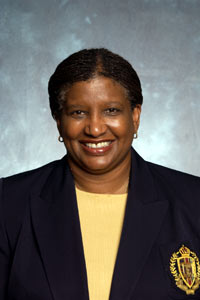Law Professors Reflect on Brown v. Board of Education
 The United States Supreme Court’s 1954 decision in Brown v. Board of Education is without question one of the most significant cases in modern constitutional law. It was also a defining event in the lives of a generation of American law teachers. Vanderbilt University Press has recently published Law Touched Our Hearts: A Generation Remembers Brown v. Board of Education (2009). The book, edited by Professors Mildred Robinson and Richard Bonnie of the University of Virginia, contains forty essays, each written by a law professor who discusses the way that his or her life was affected by the Brown decision.
The United States Supreme Court’s 1954 decision in Brown v. Board of Education is without question one of the most significant cases in modern constitutional law. It was also a defining event in the lives of a generation of American law teachers. Vanderbilt University Press has recently published Law Touched Our Hearts: A Generation Remembers Brown v. Board of Education (2009). The book, edited by Professors Mildred Robinson and Richard Bonnie of the University of Virginia, contains forty essays, each written by a law professor who discusses the way that his or her life was affected by the Brown decision.
The forty contributors vary considerably by gender, race, and ethnicity. A majority, but only a majority, grew up in states where legally segregated schools existed at the time of the Brown decision. Some are old enough to have remembered the day that the decision was handed down; others were born after it was already the law of the land. But all, to one extent or another, believe that their personal and professional lives have been profoundly shaped by the Brown decision.
I read Law Touched Our Hearts with great interest.
Although I am too young to remember the actual announcing of the Brown decision — it was handed down two weeks before my second birthday — it was clearly a defining event in my life. In 1956, my family moved from Giles County, Virginia, where I was born, to White Sulphur Springs, West Virginia. Two years earlier, after an attempt to integrate the White Sulphur schools in response to Brown, the town and nation witnessed the first post-Brown, anti-integration riot in the United States which led the county school board to cancel the integration experiment after only one week. In 1956, integration occurred a second time, this time as the result of a federal court order. My mother started teaching at White Sulphur Elementary that fall, and when I started school there two years later the fate of integrated education seemed anything but certain. In 1959, we moved back to Virginia where the schools were completely segregated, and I experienced integration a second time in 1964, when Giles County decided to voluntarily close its black schools and incorporate the entire black and white population into a single school system. (Incredibly, Giles County was the first county in Virginia to do this.)
I was also interested in Law Touched Our Hearts because eight of the contributors are good friends of mine. I can say, though, without fear of contradiction, that the most moving and most poignant essay in the entire collection is the one written by my Marquette colleague Phoebe Williams. Phoebe’s essay, titled “Segregation in Memphis,” tells the story of her experiences as an 8-year old school child in segregated Memphis schools when the Brown decision was handed down. Although the Brown edict was to be adopted with “all deliberate speed,” the “promises of Brown,” as Phoebe puts it “remained unrealized” in Memphis. There had been no school integration in Memphis when Phoebe graduated from high school in 1963, and there would be none for years to come. Her first experience with integrated education came when she enrolled at Marquette as an undergraduate.
Phoebe’s essay wonderfully captured the spirit of optimism that arose with the handing down of the Brown decision, as well as the disappointment that accompanied the failure of southern states to live up to its mandates.
I was already familiar with much of Phoebe’s account because of an appearance she made several years ago in a class on the History of the Civil Rights Movement that I was teaching in the College of Arts and Sciences. I invited Phoebe to come speak to the class about her experiences growing in the era of segregation. The students in the class were riveted by her presentation, even though most were northerners and had been born more than two decades after the Brown decision. Many students later told me that Phoebe’s presentation was the highlight of the class.
I strongly recommend Law Touched Our Hearts to anyone interested in the history of civil rights in the United States, but I insist that anyone with any sort of Marquette connection should read Phoebe Williams’ contribution to the collection (pp. 123-134).

 Talk about thinking outside the box. Since at least the time of
Talk about thinking outside the box. Since at least the time of  Nadelle Grossman
Nadelle Grossman